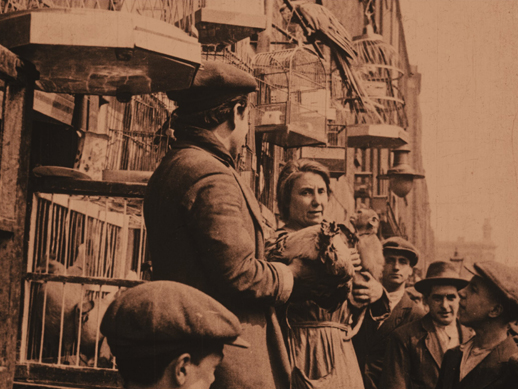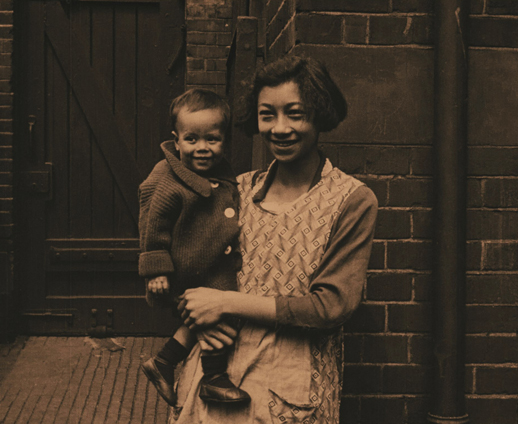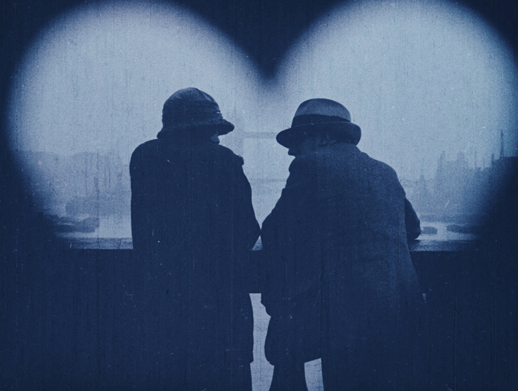Reviewed by Jude Rogers:
London’s past clings to it, to every part of it. It’s like a heavy fog. Or a thick layer of dust that you want to bury your finger in. Or a murky, solid shadow descending across the water that won’t give up light. In recent years, its past has started to cling to us too, getting more people writing more books about it, making films about it – and, yes – publishing magazines and websites about it.
But why is that? Has it always been like this? Is wanting to find out everything we can about the places where we live – and trying to fit together the memories of what’s gone as a consequence – a part of growing up and growing older? Or are we trying to burrow ourselves into the histories of our cities more than ever before because the world is spiralling onwards and upwards, and often without us?
I can’t decide. But in the month that London 2012 is rearing up before us, blinking its neons and flashing its rings – it’s not about a place and a year any more, or even an event, but an oddly distant idea, an experience in inverted commas – I know how I feel. I feel myself looking closely at every house. Scouring every single shopfront. Picking apart every crossing, every bridge, every waterway, every speck of this city that I, and so many other people, call home. What am I looking for? For idiosyncracies, wrinkles, fissures that tell us its stories, things that will flag up the different parts of this city’s temper, its personality, its life. In the last few months, I’ve seen plenty of films that do this too – Michael Smith and Wojciech Duczmal’s wonderful miniature about London Fields, Lost In London, and Paul Kelly and Saint Etienne’s Seven Summers, a journey back to the Lea Valley of their 2005 film, What Have You Done Today, Mervyn Day? (both films commissioned by the wonderful East London CREATE Festival). Then there’s been the BBC’s staggeringly good series with the Open University, The Secret History Of Our Streets, still available on iplayer – social history has been rarely done better.
And then – out of the past, like a bullet – here is Wonderful London.
Wonderful London is the title of a collection of silent travelogues filmed in 1924 by Henry B. Parkinson and Frank Miller. They were filmed as commercial shorts to run in cinemas before the main full-length feature. A few of them are shorthand visions of the London that everyone knows – Eros at Piccadilly, the Mall, that long, lumbering river – but many of them try and do something more unusual, even off-piste. Here is Barging Through London, a film of a horse and boat heaving up the Regents Canal from the Thames to the Paddington Basin, peeling off to show the streets in Whitechapel and Hackney, Kings Cross and Camden. Here are churches that were bombed away during the war, trams whose lines have long been tarmacked over. Here is Flowers Of London, a film tinted in soft pastel colours like a late ’80s indie-pop promo, showing markets full of roses and violets, and the ruddy-faced locals who sell them and buy them.
And here is The Outer Ring, packing a wallop by showing – out of nowhere – the huge bulk of the long-lost Crystal Palace, and the first Olympic Stadium, in White City, built for the 1908 Games, starting to decline only sixteen years after it was built. Where is that stadium now? In the foundations of West London’s Westfield Shopping Centre. Where is our new one? Next door to Westfield East London. Here are lessons, and warnings, indeed.
As films, the Wonderful London travelogues are quaint little creatures, not particularly experimental in their design, or blessed with hugely elegant inter-titles – although some words that grace the screen do have a peculiar poetry (Barging Through London includes a line about the boat passing “heaven amid the gaunt wharves”, which I’ve used as the title of the piece that I wrote for the DVD liner notes). But an air of furtive fascination, even exoticism, lurks in every frame – the idea that here in is something, gentle viewer, that your eye wouldn’t usually see, that his new beast, the movie camera, somehow magically can.
One film, however, shows that exoticism in a much murkier fashion. Cosmopolitan London takes us to meet the Jews of the East End, the ‘Lascars’ working at the docks, the Chinese newcomers at Limehouse. The camera peers hard in the faces of these people as if they were circus animals, and the language in which many are described (“a swarming hive of humanity”, for example) is deeply unpleasant. But as Sukhdev Sandhu writes in his DVD essay, there is still something oddly moving about bearing witness to footage of these men, women and children, and that this footage should be cherished for its survival alone. This was one of the first times on film that the existence of these people was being recognised. Eighty-eight years later – the lifetime of a person later – it makes you realise how London has changed, in some ways, in so many good ways.
Elsewhere, you encounter the stirrings of images that other, later productions would echo. In London Off The Track, you see the backstreets of Smithfield, old pubs and mews houses; in London’s Free Shows, you watch surreal leaps between street entertainers and doughty road fixers. If you’ve seen the 1969 documentary The London Nobody Knows (rediscovered then re-released on DVD in 2008) you half-expect its narrator James Mason to suddenly materialise in his flatcap, idly swinging his umbrella and curling his upper lip. In London’s Sunday, the young couple riding a bike make you think of so many swinging images, only forty years too soon. And in those long static shots, letting the city move and breathe for itself, there is the slow, languid movement of Patrick Keiller’s London.
But that’s also anyone’s London. The London that people see simply, and softly, with their own eyes if they open them wide enough. A London that is still recognisable today, in those same pubs down in Fleet Street, in the green leaves of Regents Park. A London that reminds us of its power in these twelve precious films – a power I know will only capture people more tightly, more deeply, more intensely, after the Games closes its doors, and the world keeps on turning.
—————————————————————————————————————————————
Jude Rogers is co-editor of Smoke: A London Peculiar. Smoke launch the Wonderful London DVD tomorrow night (Wednesday 18th July), at Rough Trade East. Bob Stanley from Saint Etienne provides a one-night-only London soundtrack, Jude reads her essay on the Barging Through London film, and BFI curator Bryony Dixon introduces the collection.
Wonderful London can be bought from the Caught by the River shop, priced £15.


